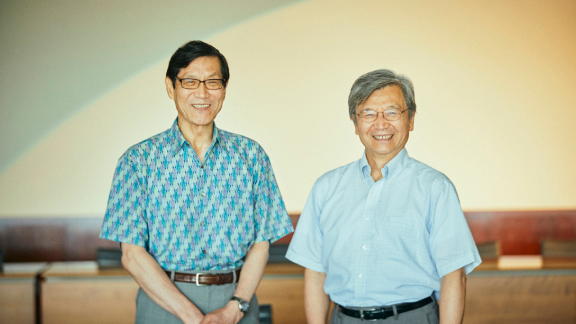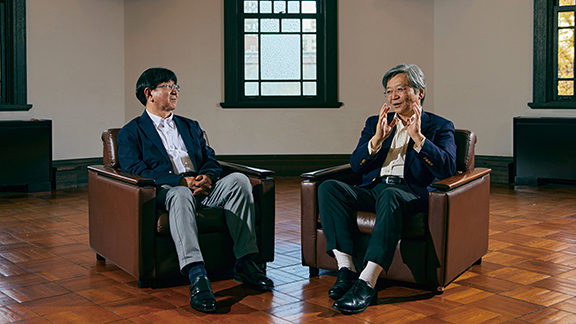Dialogue series Vol.6
Why is Meigaku creating a Faculty of Mathematical Informatics?
In April 2024, Meiji Gakuin University's first science department, the Faculty of Information and Mathematical Sciences, will be established. President Makoto Imao and Dean Hiroshi Imai of the Faculty of Information and Mathematical Sciences spoke about their thoughts on the establishment of a new faculty and the future of Meiji Gakuin University, which will further contribute to society and others while utilising the knowledge in the humanities that has been accumulated to date.
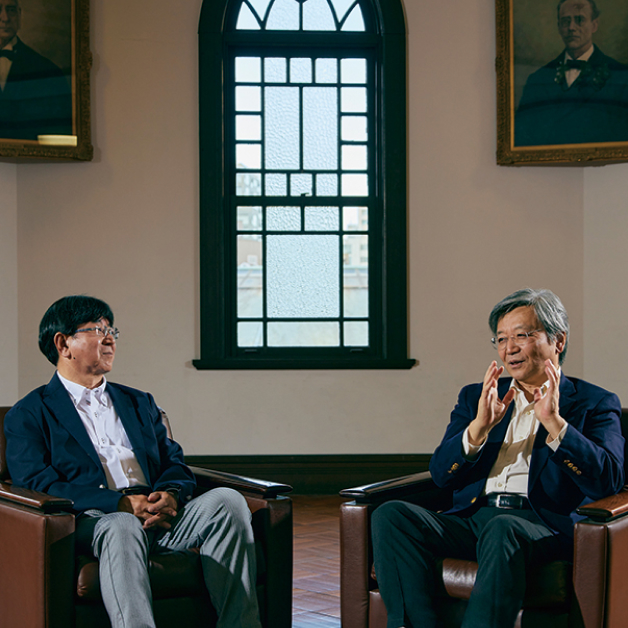
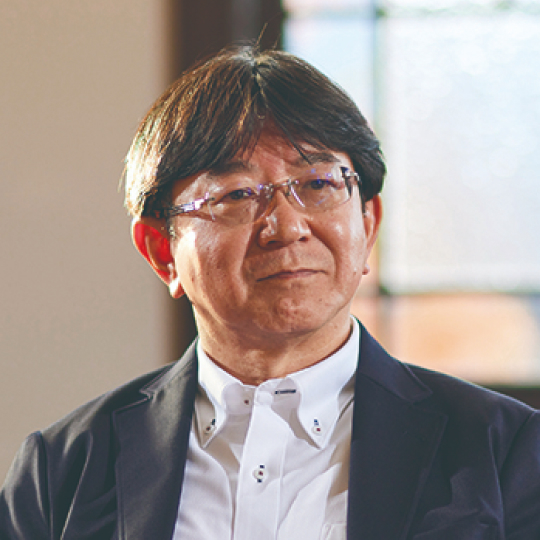
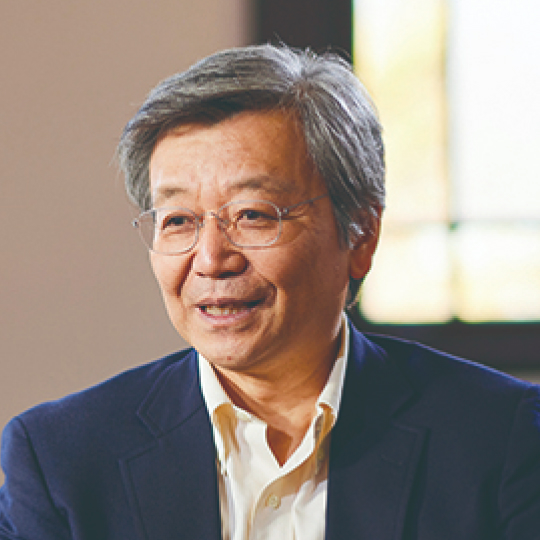
A new faculty to accelerate the practice of "Do for Others", contributing to the construction of a better information society in 2024 through "Information" x "Mathematics".
Expectations for new faculties to meet the demands of the times
We are very excited to witness the beginning of a new history with the establishment of the Faculty of Information and Mathematical Sciences. Based on the educational philosophy of "Do for Others", the University has provided education in the humanities and social sciences. We believe that the new addition of the field of natural sciences will bring about significant changes.
Meiji Gakuin University is a university that has built up a unique culture of education over its more than 160-year history and has made it a major asset. By integrating the Faculty of Information Mathematics and Science into it and opening up new areas, we hope to develop it into a comprehensive university with both arts and sciences.
What I have felt in recent years is the importance of presenting objective data as evidence when solving problems. I expect that incorporating quantified information into areas that have until now been discussed in natural language will further deepen learning in the humanities.
Natural science perspectives are becoming increasingly important today. The University has already introduced AI and data science education as part of its university-wide education, and it is now a social requirement to develop human resources with a mathematical mindset. It is thought that knowledge of information mathematics will be even more important in the future.
Towards a human-driven AI society
The Faculty of Information Mathematics and Science offers three courses from the third year: 'Mathematics and Quantum Information', 'AI and Data Science' and 'Information Systems and Security'. Each has a very distinctive curriculum.
Quantum computing and artificial intelligence, which will be major developments in the future, and security, which is essential for sound information systems. In offering these studies, we designed the course from scratch, rather than adjusting existing curricula. Smartphones, which are used by many people, were originally created by human hands. In other words, people can also be the "creators" of smartphones. We hope that students will acquire the ability to not only use what is given to them, but also to "create" on their own through their studies in the various courses. In today's world of rapid technological progress, there is also a danger that if you only follow the frontier, you will quickly become obsolete. That is why we want to foster students with a solid foundation in mathematical thinking and a deep understanding of information systems.
Our university was a liberal arts university, so there are not a few students who are not very good at science-related studies. I hope that the Faculty of Information and Mathematical Sciences will spread the power of creation and the perspective of mathematical thinking to students from other faculties.
My aim is for the Faculty of Information and Mathematical Sciences to become a source of inspiration for students from other faculties. On the other hand, I also feel that the Faculty of Information Mathematics and Science needs to actively collaborate with the humanities faculties in order to utilise the assets that the university has built up. Even if excellent technology is developed, there is a possibility that it will not be implemented in society due to a lack of communication, or that the technology will run amok and cause problems. To create technology that can contribute to the world, it is essential to collaborate with humanities departments that are familiar with social systems.
In my field of law, themes such as "Can artificial intelligence judge people?" are now being discussed. There is also concern that artificial intelligence will take away people's jobs. It is the role of humans to search for solutions and find harmony when something goes wrong. On this basis, I hope that the world will become a place where people can live like human beings, while adapting to the times by acquiring new technologies and knowledge.
Artificial intelligence has achieved significant results in science fields where information can be quantified, such as genetic analysis and image analysis. However, in fields such as law, which deal with events that are difficult to quantify, we are still at the stage of taking on challenges. I have been involved in computer research for many years, but I still believe that artificial intelligence is not meant to replace humans, but only to support them. There may be several breakthroughs in the future, but it is important to co-exist with artificial intelligence and humans while recognising their respective strengths. While assuming the existence of humans, artificial intelligence and robots will be used to liberate humans from simple tasks. The liberated people will then use their creativity to create a new society and further enrich their lives. Such a trend is desirable.
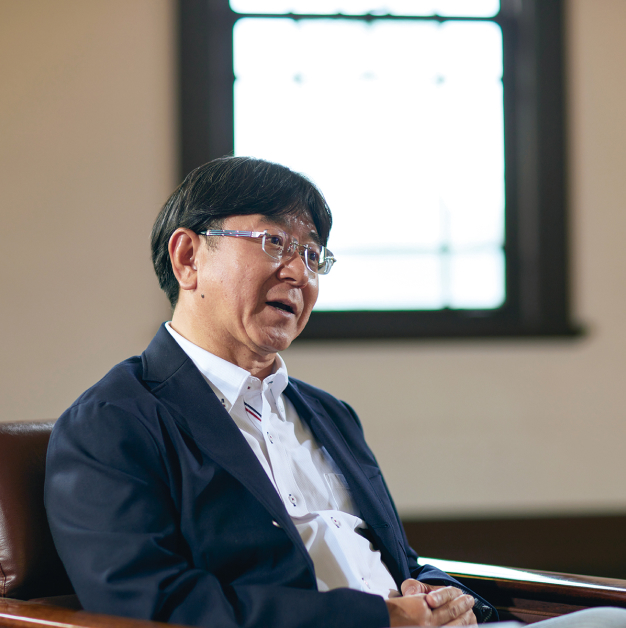
Drawing on the accumulated knowledge of humanities disciplines and organically linking them with existing humanities faculties.
-Synergies from the integration of the humanities and sciences
The fusion of the humanities and sciences is being called out loudly at various universities, and I hope that students themselves will actively learn without being bound by distinctions between the humanities and sciences. I hope that both students entering the Faculty of Information Mathematics and Science and students from existing faculties will enjoy their studies at the University to the fullest, and that they will learn about fields that interest them beyond the boundaries of the humanities and sciences.
In order to swiftly realise the integration of the humanities and sciences, it is also essential to collaborate at the faculty level. To this end, with the opening of the Faculty of Information and Mathematical Sciences, the Centre for the Integrated Area of Information Science will be established as a university-wide organisation. First of all, through this centre, we would like to deepen communication between teachers and improve the quality of learning.
Currently, the Faculty of Economics and the Faculty of Psychology have curricula that integrate the humanities and sciences, and we are in the process of accelerating our efforts to offer this across all faculties.
Generative AI will be able to analyse various data from the economy to support management and recommend new ideas. By the time the new students graduate, they may be using generative AI to conduct research as a matter of course. Speech recognition technology is also making great progress, and we are approaching an age when we will be able to have discussions with artificial intelligence. By utilising such technology in the humanities, we may be able to contribute to a better society. At a turning point in modern society when technological breakthroughs have occurred, I feel that Meiji Gakuin University's establishment of a new School of Information Mathematics and Science is of great significance as a new dawn of learning for our university.
What I have fostered so far are people who can reach out to the socially vulnerable with the weapon of law and the courage to speak up. If the power of information technology is added to this, I expect that we will be able to produce people who can realise our educational philosophy of "Do for Others" at a higher level.
Society is made up of many 'Others'. The Faculty of Information and Mathematical Sciences will contribute to the creation of new knowledge based on the tradition of "Do for Others".
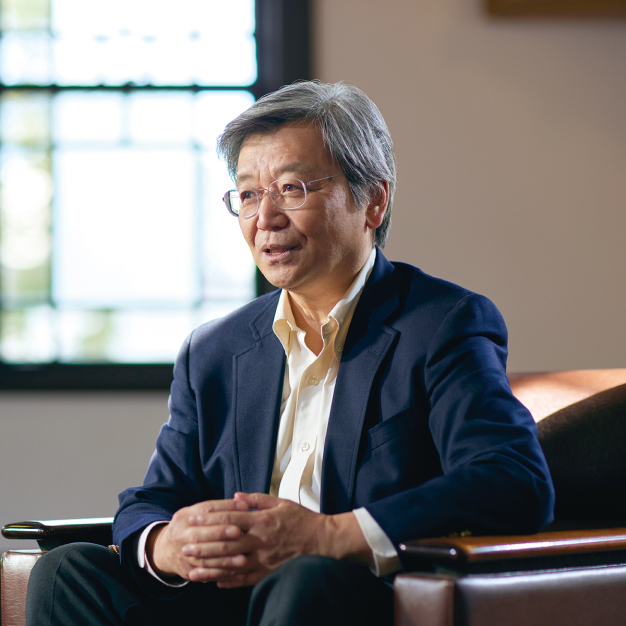
List of articles in dialogue
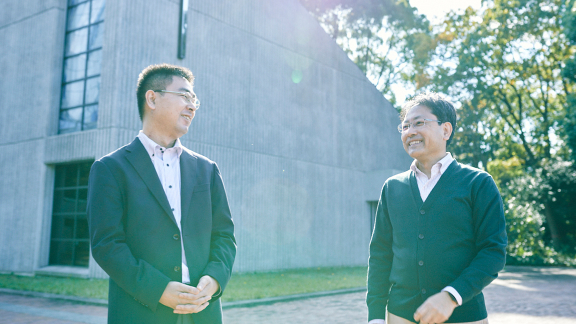 Mr. Irie (Denso) ・ Prof. Ota ed.
Mr. Irie (Denso) ・ Prof. Ota ed. Dialogue Series Vol.2 A future is coming that not even Einstein could have imagined. ― The world of "information" changed by quantum mechanics. From there, the Faculty of Information and Mathematical Sciences learns from a future perspective.
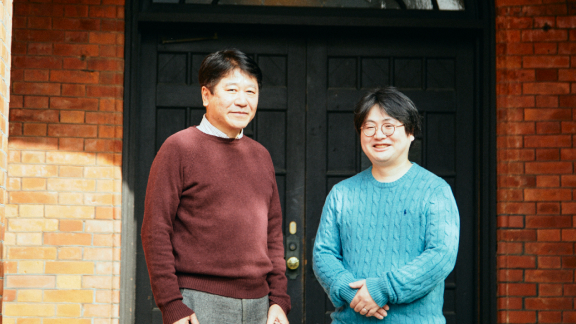 Prof. Kameda and Associate Prof. Inukai, eds.
Prof. Kameda and Associate Prof. Inukai, eds. Dialogue Series Vol.3 Updating the humanities and social sciences with the power of information mathematics! ― Information mathematics is a communication and hub that connects disciplines and people.
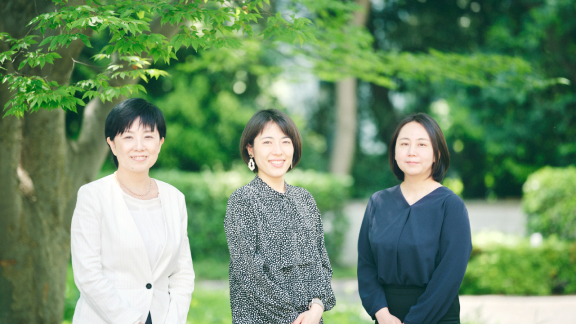 Female Researchers Edition
Female Researchers Edition Dialogue Series Vol.4 A background in informatics and mathematics is the foundation of all science. ― Great Expectations for Integration with Diverse Fields


